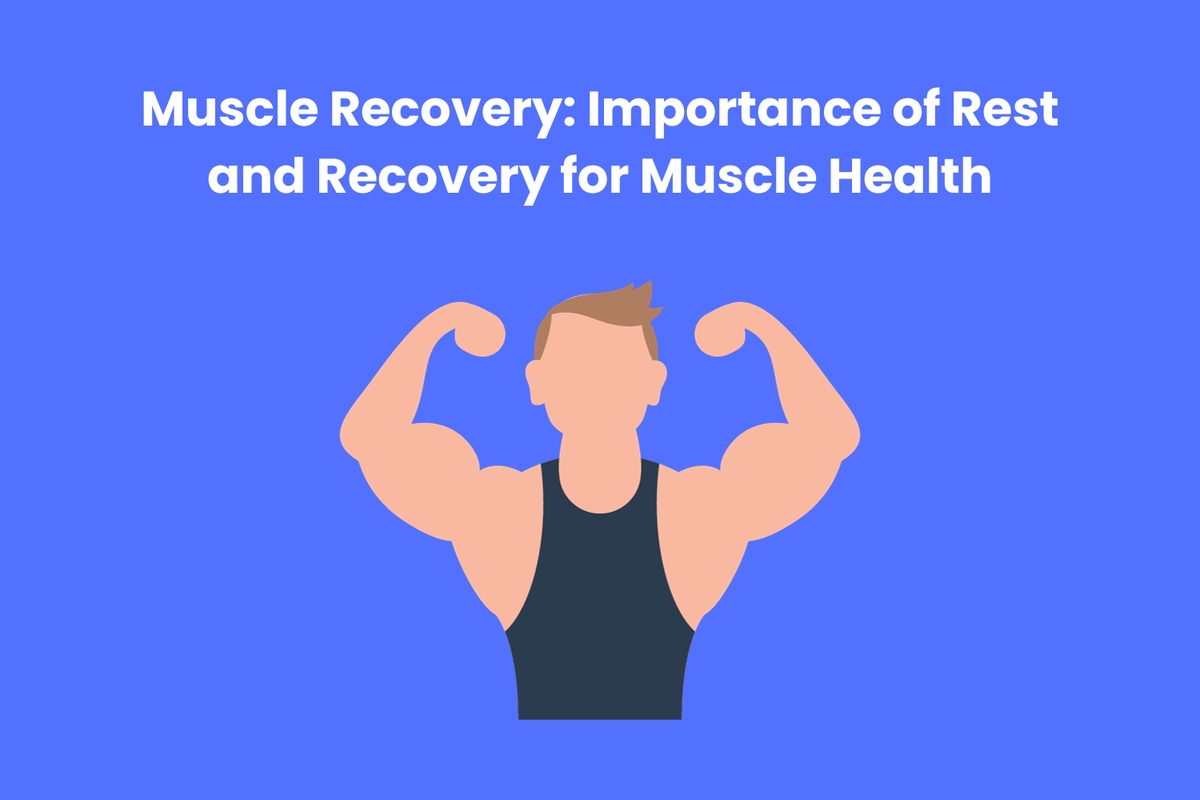Muscles are the contractile tissues in the body that enable movement, posture, and stability. They are composed of muscle fibers that can contract and relax to generate force. Muscles are essential for various bodily functions, including locomotion, digestion, and circulation.
Importance of Rest and Recovery for Muscle Health
Rest and recovery are crucial components of a balanced fitness regimen, especially when it comes to maintaining muscle health. While exercise is essential for building and strengthening muscles, adequate rest and recovery are equally important for optimal muscle function and growth. In this blog, we'll explore the importance of rest and recovery for muscle health and discuss strategies to promote effective muscle recovery.
Muscle Repair and Growth: During exercise, muscles undergo stress and micro-tears, leading to muscle damage. Rest and recovery periods allow the body to repair these micro-tears and build stronger muscle fibers. Without adequate rest, the body may not have enough time to repair and rebuild muscle tissue, leading to overtraining and potential injury.
Prevention of Overtraining: Overtraining occurs when the body is subjected to intense exercise without sufficient rest and recovery. This can lead to decreased performance, increased risk of injury, and overall fatigue. By incorporating rest days into your workout routine, you can prevent overtraining and allow your muscles to recover fully between sessions.
Hormonal Balance: Rest and recovery play a crucial role in maintaining hormonal balance, which is essential for muscle growth and repair. Hormones such as testosterone and growth hormone are released during sleep, promoting muscle protein synthesis and tissue repair. Inadequate rest can disrupt this hormonal balance, negatively impacting muscle recovery and growth.
Injury Prevention: Rest and recovery help prevent injuries by allowing the body to repair damaged tissues and build resilience. Overtraining and insufficient rest can increase the risk of muscle strains, sprains, and other injuries. By incorporating rest days and recovery strategies into your routine, you can reduce the risk of injury and ensure long-term muscle health.
Performance Improvement: Adequate rest and recovery can improve overall athletic performance by allowing muscles to fully recover and adapt to training stimuli. Rested muscles are better able to generate force, endure prolonged activity, and recover quickly between bouts of exercise. This can lead to improved strength, endurance, and overall athletic performance.
Strategies for Effective Muscle Recovery
To optimize muscle recovery, it's essential to incorporate rest and recovery strategies into your fitness routine. Here are some strategies to promote effective muscle recovery:
Rest Days: Schedule regular rest days into your workout routine to allow your muscles to recover fully. This can include complete rest or light activities such as walking or yoga.
Sleep: Aim for 7-9 hours of quality sleep each night to support muscle recovery and repair. Sleep is essential for hormone regulation, tissue repair, and overall recovery.
Nutrition: Eat a balanced diet rich in protein, carbohydrates, and healthy fats to support muscle recovery and growth. Consuming protein after exercise can help repair and build muscle tissue.
Hydration: Drink plenty of water to stay hydrated, as dehydration can impair muscle recovery and performance.
Active Recovery: Incorporate active recovery activities such as foam rolling, stretching, or low-intensity exercise to promote blood flow and reduce muscle soreness.
Massage and Compression Therapy: Consider massage or compression therapy to promote muscle recovery and reduce post-exercise soreness.
Listen to Your Body: Pay attention to your body's signals and adjust your training intensity and frequency accordingly. If you're feeling excessively fatigued or sore, it may be a sign that you need more rest.
Conclusion
Rest and recovery are essential for maintaining muscle health and optimizing athletic performance. By incorporating rest days, prioritizing sleep, and supporting your body with proper nutrition and hydration, you can promote effective muscle recovery and ensure long-term muscle health. If you're looking to enhance your muscle recovery strategies, consider consulting with a fitness professional or coach to develop a personalized plan that meets your needs and goals.


No comments yet